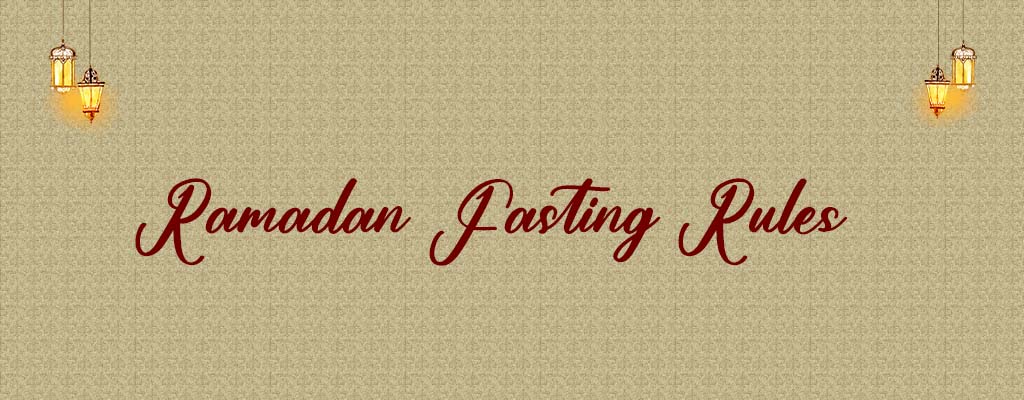Ramadan Fasting Rules
In the holy month of Ramadan, Muslims who observe the fast refrain from eating and drinking from dawn to dusk to achieve greater “taqwa,” or consciousness of God.
In this visual explainer, we explain some rules about Ramadan to help you better understand its significance and practices.
-
Who is Obligated to Fast?
- Conditions for obligatory fasting:
- Being a Muslim
- Being of sound mind
- Reaching puberty
- Being a resident (not travelling)
- Being capable of fasting (health-wise)
- Exemptions from fasting (with the obligation to make up the fasts later):
- Illness
- Travel
- Menstruation and post-natal bleeding
- Pregnancy and breastfeeding (with differing opinions on whether to make up or offer fidyah)
- Exemptions with fidyah (compensation):
- Those who are permanently unable to fast due to old age or chronic illness.
- Conditions for obligatory fasting:
-
The Intention (Niyyah) in Ramadan Fasting Rules
- The importance of Niyyah (intention).
- When to make the intention (before dawn).
- Whether the intention needs to be verbalized.
- Differences of opinion on making a single intention for the entire month.
-
What Invalidates the Fast?
- Deliberate Eating and Drinking:
- The ruling on forgetting and unintentionally eating or drinking.
- Deliberate Vomiting:
- The verdict on unintentional vomiting.
- Sexual Intercourse:
- The severe consequences and expiation (kaffarah).
- Masturbation:
- Menstruation and Post-natal Bleeding:
- Intentional Ejaculation:
- Anything that reaches the stomach through an open passage:
- Detailed explanation and examples (e.g., nasal drops).
- Deliberate Eating and Drinking:
-
What Does NOT Invalidate the Fast?
- Forgetfully eating or drinking.
- Unintentional vomiting.
- Swallowing saliva.
- Using Miswak or a toothbrush (with caution).
- Taking a bath or shower.
- Applying kohl (eyeliner).
- Kissing or embracing one’s spouse (if one can control themselves).
- Blood tests or injections (non-nutritive).
-
Making Up Missed Fasts (Qaeda)
- The obligation to make up missed fasts.
- The timeframe for making up fasts.
- The ruling on delaying making up fasts until the next Ramadan.
- Fasting days of Qada consecutively or separately.
-
Fidyah (Compensation) in Ramadan Fasting Rules
- Who is required to pay fidyah?
- The amount of fidyah to be paid.
- To whom the fidyah should be given.
-
Taraweeh Prayers
- The significance of Taraweeh prayers in Ramadan.
- The number of Rakats in Taraweeh.
- The permissibility of reading from the Quran during Taraweeh.
-
Etiquettes of Fasting
- Lowering one’s gaze and guarding one’s tongue.
- Being generous and charitable.
- Reciting the Quran.
- Making Du’a (supplication).
- Avoiding idle talk and arguments.

